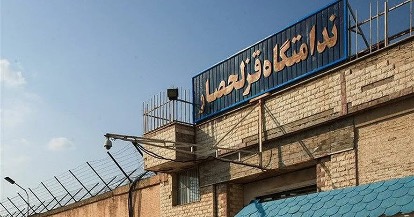RASC News Agency: An Afghanistani prisoner, Nabi Bayati, has tragically died in Iran’s Ghezel Hesar Prison in Karaj after staging a four-day hunger and thirst strike. His protest was reportedly initiated in response to what he described as “humiliating and discriminatory treatment” by prison authorities. According to a detailed report by Iran wire, Bayati was initially placed in solitary confinement following a physical altercation involving three other inmates. Subsequently, under the orders of Esmail Faraj-Nezhad, the deputy director of the prison, he was transferred to Ward 1, a high-security unit infamous for its repressive conditions. Upon this transfer, Bayati launched a complete hunger strike, refusing both food and water, in what appears to have been a final act of protest against the dehumanizing treatment he endured.
Sources inside the prison confirmed that despite clear signs of deteriorating physical health, authorities not only withheld medical assistance, but also subjected him to additional psychological and physical punishment. Among these retaliatory actions was his transfer to Corridor 9, an austere holding area used for inmates in transit, where detainees are reportedly denied access to even the most basic human necessities. The human rights organization Hengaw, in an independent investigation, verified the details surrounding Bayati’s death and condemned the prison authorities for wilful negligence. The organization has called for an urgent, impartial, and transparent inquiry into the systemic abuses that led to his death, describing the incident as a violation of both Iranian and international human rights obligations.
Bayati’s death brings renewed attention to the dire and inhumane conditions within Iranian detention facilities, particularly for foreign nationals and marginalized groups. Rights advocates argue that prisons like Ghezel Hesar operate with minimal oversight, enabling routine use of solitary confinement, denial of healthcare, and psychological coercion practices widely condemned by international human rights bodies. This case is emblematic of the broader crisis within Iran’s penal system, where prisoners’ lives are often extinguished in silence, concealed behind walls of impunity. Human rights observers emphasize that Bayati’s death is not an isolated tragedy, but part of a pattern of systematic mistreatment and institutionalized repression.
As international concern mounts, calls for accountability grow louder. The death of Nabi Bayati must not be allowed to fade into obscurity. The international community has a moral obligation to demand justice and to hold Iranian authorities accountable for their failure to uphold basic standards of human dignity and prisoner welfare.






